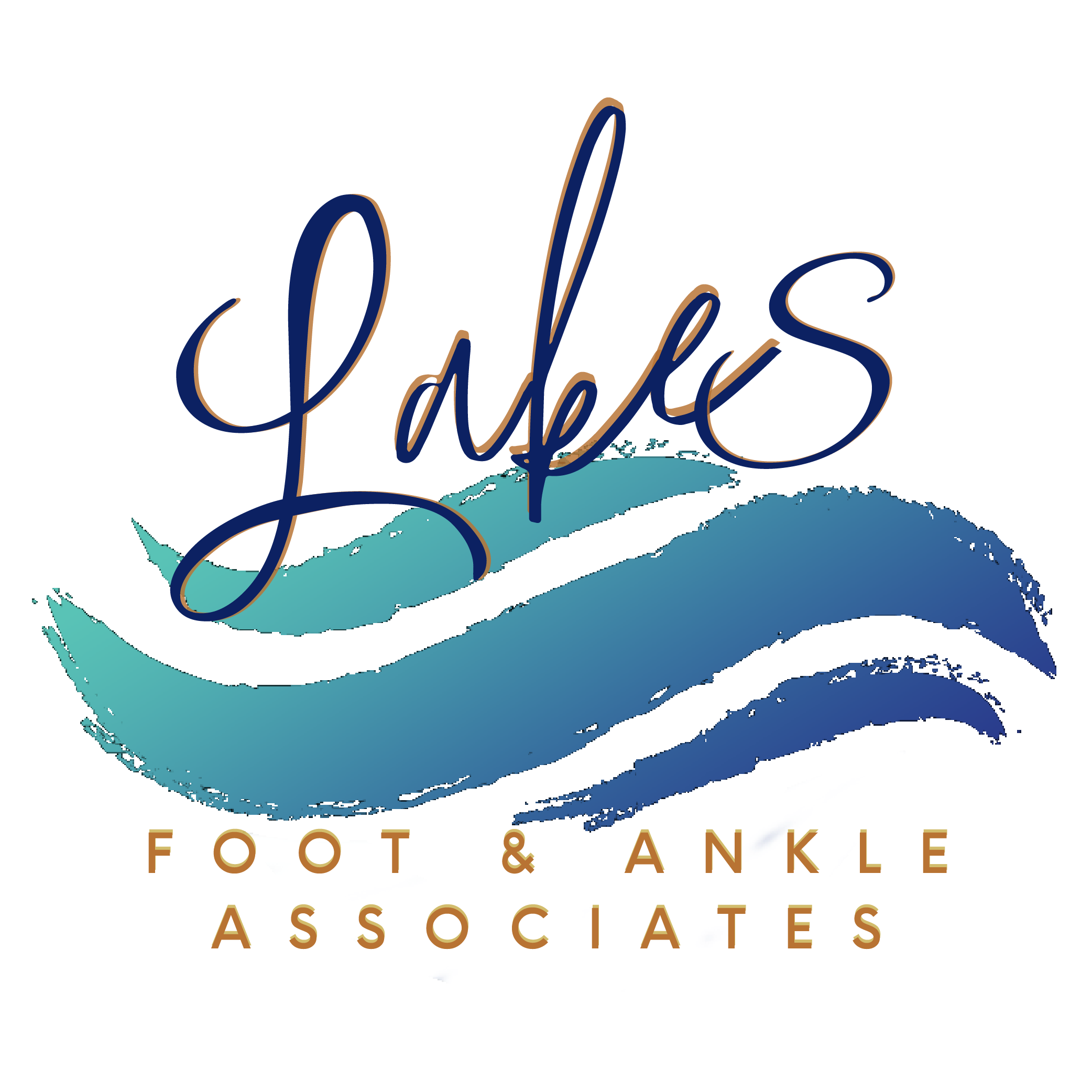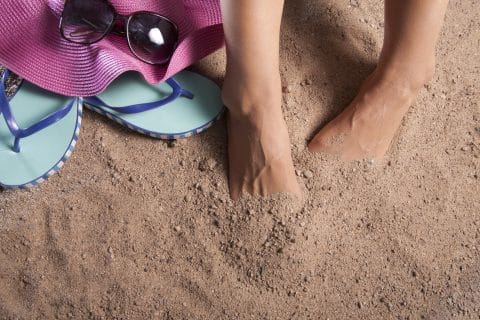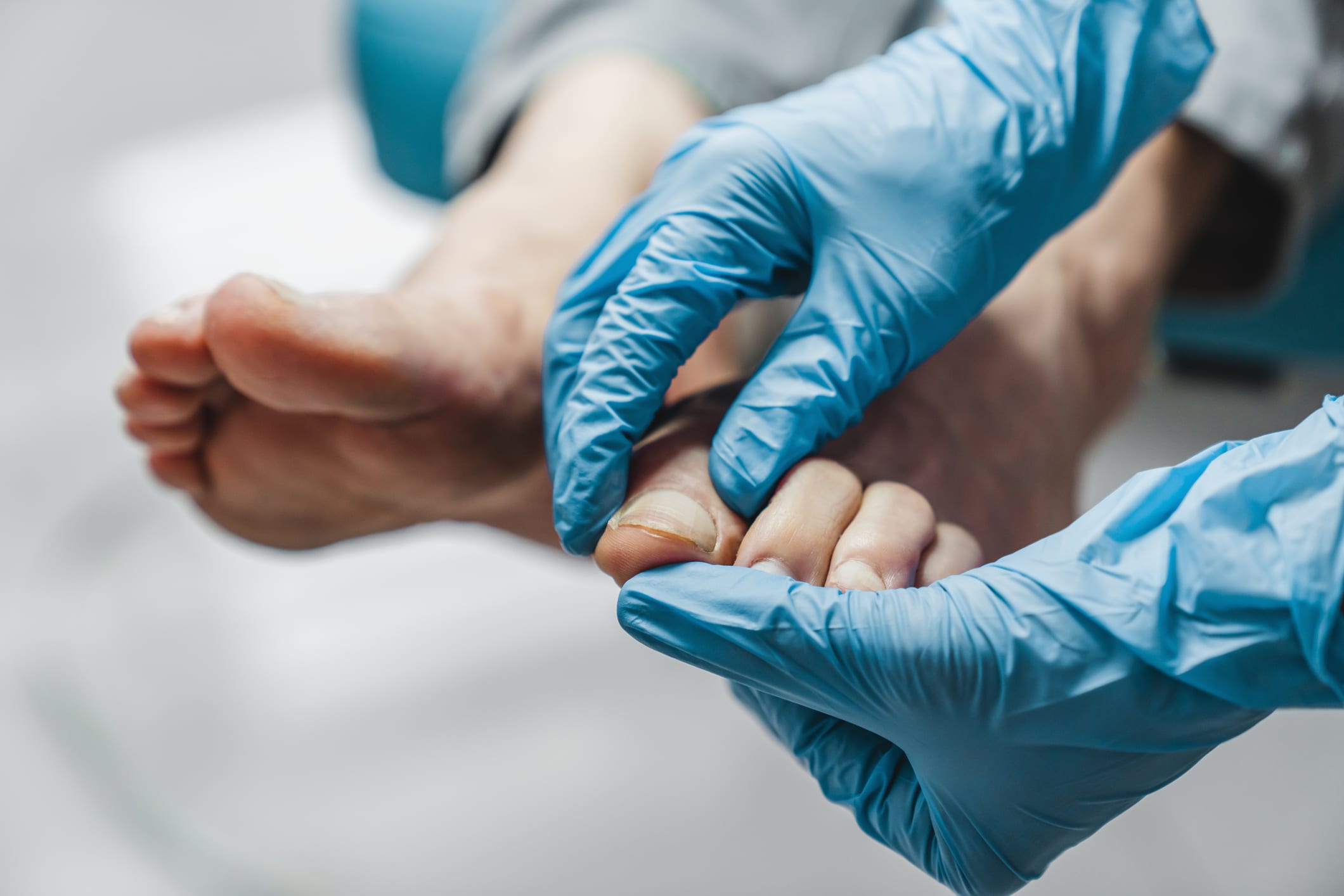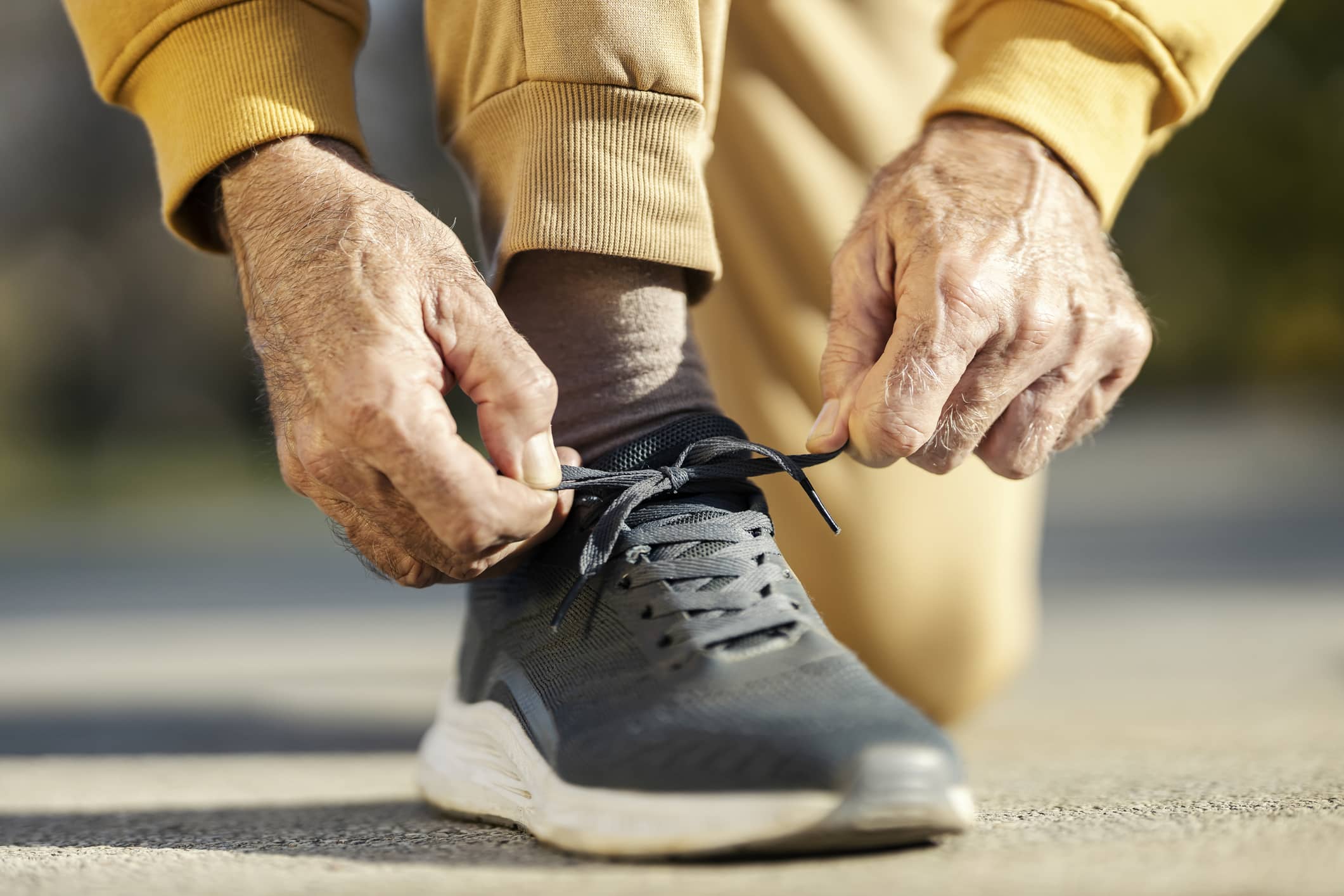Toenail fungus is notorious as an unwanted guest: unsightly, quick to spread out, and stubborn. If you’ve ever tried to treat toenail fungus at home, you know how futile the struggle can be. You may have even visited a podiatrist only to be prescribed oral medications that take a long time to work—and come with unpleasant side effects.
But modern technology has given long-suffering nails a new hope: laser treatment for toenail fungus. It may sound like science fiction, but lasers have quickly become the safest and most effective treatment method for stubborn fungal infections. They don’t require downtime or carry the same risks—like liver damage—as commonly prescribed oral medications.
Before you throw out your peep-toe heels or turn down that invitation to the pool, learn all about how this revolutionary treatment can help!
What Does Toenail Fungus Look Like?
First things first: you want to make sure that the problem you’re dealing with actually is a fungal infection. The only way to know for sure is to have your nail(s) examined by a trusted podiatrist. But there are a few warning signs to watch for:
- Discoloration, often yellow or (less commonly) milky white
- Thickening
- Brittleness, flaking, crumbling, or cracking
- Ragged or misshapen appearance
- Lift or separation from the nail bed (which can lead to nail loss)
Some non-fungal causes could also be to blame for these symptoms, however. Nail irregularities can be related to chronic medical conditions, like psoriasis, Darier disease, or even certain forms of alopecia. Although rare, dark spots under the nail could also indicate skin cancer. That’s why it’s important to visit a podiatrist for any changes you notice in your toenails!
Is Toenail Fungus Contagious?
Yes, unfortunately, toenail fungus is very contagious. Up to 14% of people are estimated to be dealing with a fungal nail infection at any given time in the U.S. The infection can spread through direct contact with infected surfaces, such as locker room floors, public showers and saunas, shoes, and pedicure tools. If you have a fungal skin infection like athlete’s foot, ringworm, or jock itch, this infection can easily spread into the nails if not treated right away.
How to Get Rid of Toenail Fungus Safely
At Lakes Foot & Ankle Associates, we use the Cutera GenesisPlus laser system to safely and effectively eliminate toenail fungus.
How Laser Treatment for Toenail Fungus Works
Like other cosmetic laser treatments, the Cutera GenesisPlus works by converting light energy into heat. The light can travel through each layer of the toenail, reaching all the way to the nail bed where the deepest fungal spores often lay dormant. The heat is powerful enough to kill the fungus without damaging the healthy tissue nearby. Then, new, healthy nail growth can begin!
Chains of fungal spores in the nail bed have thick cell walls, which can make them resistant to antifungal medications. That resistance has historically made it difficult to completely eradicate the infection, leading to very high rates of recurrence. Laser technology changes all that—reaching even the most stubborn spores.
Cutera GenesisPlus Treatment Benefits
This procedure is highly effective compared to topical treatments alone, and is much safer than oral treatments. Oral antifungal medications can cause side effects like rash, interfere with other prescriptions, and even harm the liver (that’s why alcohol is strictly prohibited during the treatment period).
Laser therapy comes with none of these risks and added benefits of:
- Quick procedure (max. 30 minutes)
- Pain-free experience
- No anesthesia and no medication required
- No side effects
- No downtime
What to Expect From the Treatment Process
During your appointment, all you’ll have to do is sit back and relax while your podiatrist uses the laser device on your affected nail or nails. This is a painless procedure; at most, you might feel a slight warming sensation. We generally recommend three or four treatments over the course of as many months to maximize results, though we will monitor your progress as you go.
At Lakes Foot & Ankle Associates, we combine this powerful laser technology with in-office nail debridement (a specialized removal and trimming of diseased nail) and topical medications. Together, these therapies will optimize your path to fungus-free nails!
Prevention & Management
After treatment, your nail will begin the process of regrowth. You aren’t likely to start seeing any changes for about 2 months, and it may take 12 to 18 months for the healthy nail to grow out completely, depending on the severity of damage. Still, this treatment window is quicker and more manageable than other treatments that require you to remember them every day.
Of course, killing one fungal infection doesn’t make you immune to future infections. To protect your nails for good, be sure to follow our post-treatment guidelines!
Start Now to Get Your Toes Summer Ready
No toenail fungus treatment can promise you next-day results for discoloration and damage, but our advanced laser technology can get you on the road to recovery much faster and safer than your other options. If you want to get sandal-ready by the summer months, don’t wait—start early for the best possible results! The sooner you take care of a fungal infection, the better your chances of beating it back for good.
Lakes Foot & Ankle Associates: Bringing the Best Toenail
Fungus Treatment to Commerce Township
Our friendly podiatrists, Dr. Shanahan and Dr. Petronella, are ready to help you tackle any foot pain, ankle pain, or other below-the-knee condition that ails you. Proud members of both the American Podiatric Medical Association and the Michigan Podiatric Medical Association, our providers are dedicated to your health and wellness, offering advanced treatments to help you get on your feet and live life to the fullest! Call (248) 360-3888 or request an appointment online today!
It’s Time To Leave Foot & Ankle Pain Behind!
9640 Commerce Rd Suite 102 Commerce Township, MI 48382
| Monday | 8:30am – 5:00pm |
| Tuesday | 9:00am – 5:00pm |
| Wednesday | 8:30am – 5:00pm |
| Thursday | 9:00am – 6:00pm |
| Friday | 7:30 am – 4:00pm |
| Saturday | – Closed – |
| Sunday | – Closed – |



